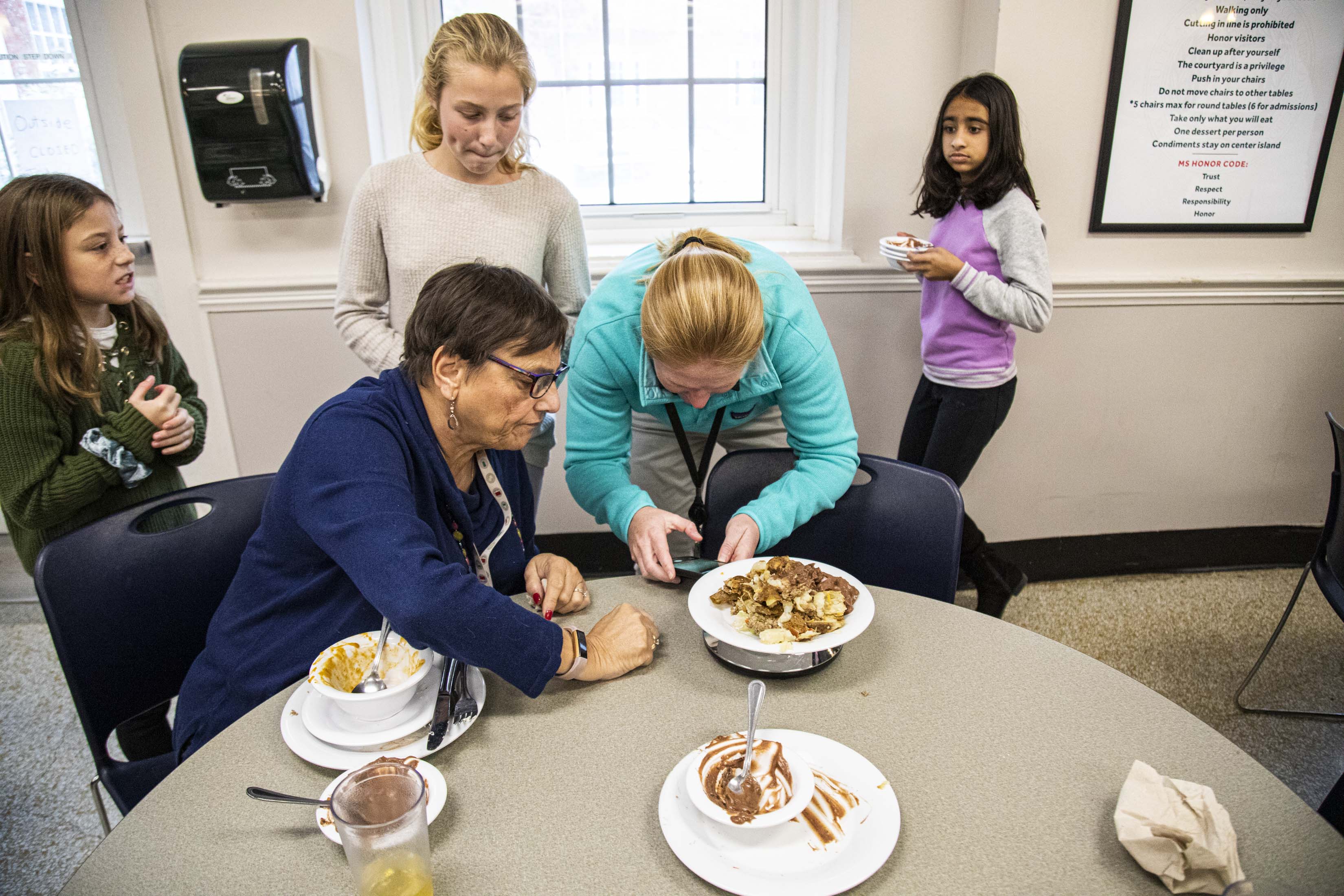Fifth graders Rowan Wright ’27 and Elise Burris ’27 looked around the Middle School cafeteria and realized that their friends were discarding a lot of food into the compost bins. They decided that it would be helpful if their friends understood more about food waste, and so they put together a presentation and then conducted an experiment to measure how much food wound up in the compost bin. Wright and Burris instructed their peers to take only what food they thought they would eat. After lunch over the course of one week, students gathered by advisory and weighed their leftover food before discarding into the compost bins.
Wright and Burris explained why reducing food waste is important. They said, “We should reduce food waste because other people could have the food you didn’t eat. Food waste might harm animals if it is something an animal couldn’t eat. Some people really need the food. It also takes a lot of energy to make food. We should also reduce food waste because it is better for the environment.”
They also shared that it’s important to compost appropriate food instead of throwing it away. Did you know that 94% of food that is thrown away ends up in a landfill?
You might be wondering how students can reduce food waste. Wright and Burris offered their community helpful strategies:
- Take less. You can ask for small portions!
- Don’t just get food for the fun of it.
- If you’re not sure you’re going to like something, try a little first. You can always go get more.
Our friends at Flik Dining, the food provider for MICDS, also work hard to help prevent food waste. Perhaps the most visible effort is seen in the cafeteria each day: the bright yellow compost bins. Flik works with Total Organics Recycling to ensure our food waste avoids the landfill and instead turns into a nutrient-rich soil supplement through a process called composting. Compost is an organic material that has the unique ability to improve the chemical, physical and biological characteristics of soils. As the material decomposes, it generates heat that sanitizes the material and makes it beneficial for plant growth. Our discarded food could be used to help grow more food!
What happens to the food that’s not taken? As good as composting is, Flik tries to minimize what goes into the yellow cans. Leftover veggies are turned into tasty salad bar toppings or are used to enhance marinara, soups and sauces. Erin Carrico MS RD, Assistant Director of Dining Services with Flik Independent School Dining, said the cafeteria staff pays close attention to what their customers like, continually adjusting the menu to provide healthy, nutritious food that students will eat and enjoy. This is perhaps the first and best step in avoiding food waste, and based on the smiles in the Middle School cafeteria, it works!
Thanks for your efforts to help your friends understand food waste, Rowan and Elise. You’ve shared some great information we all find useful!







